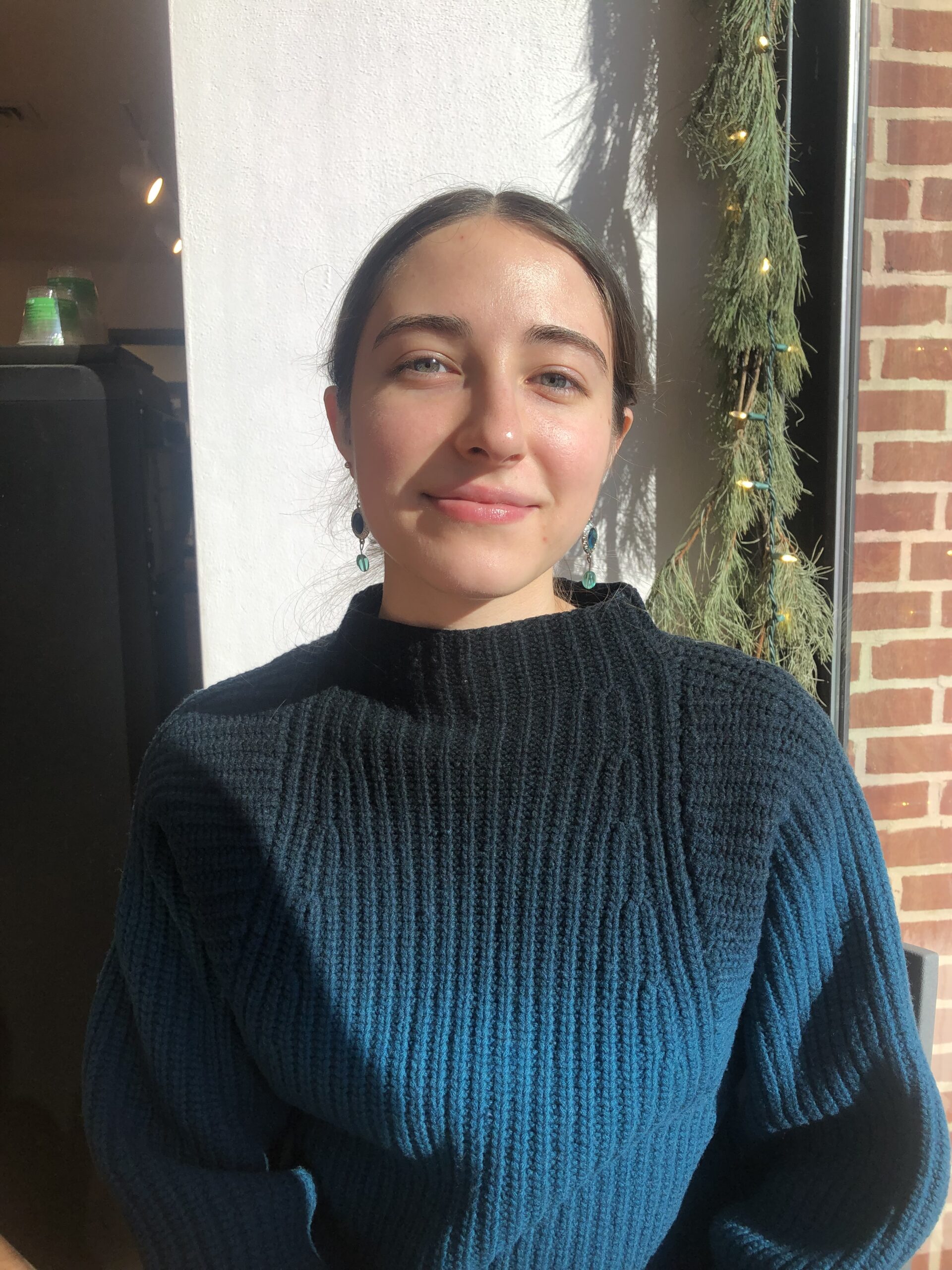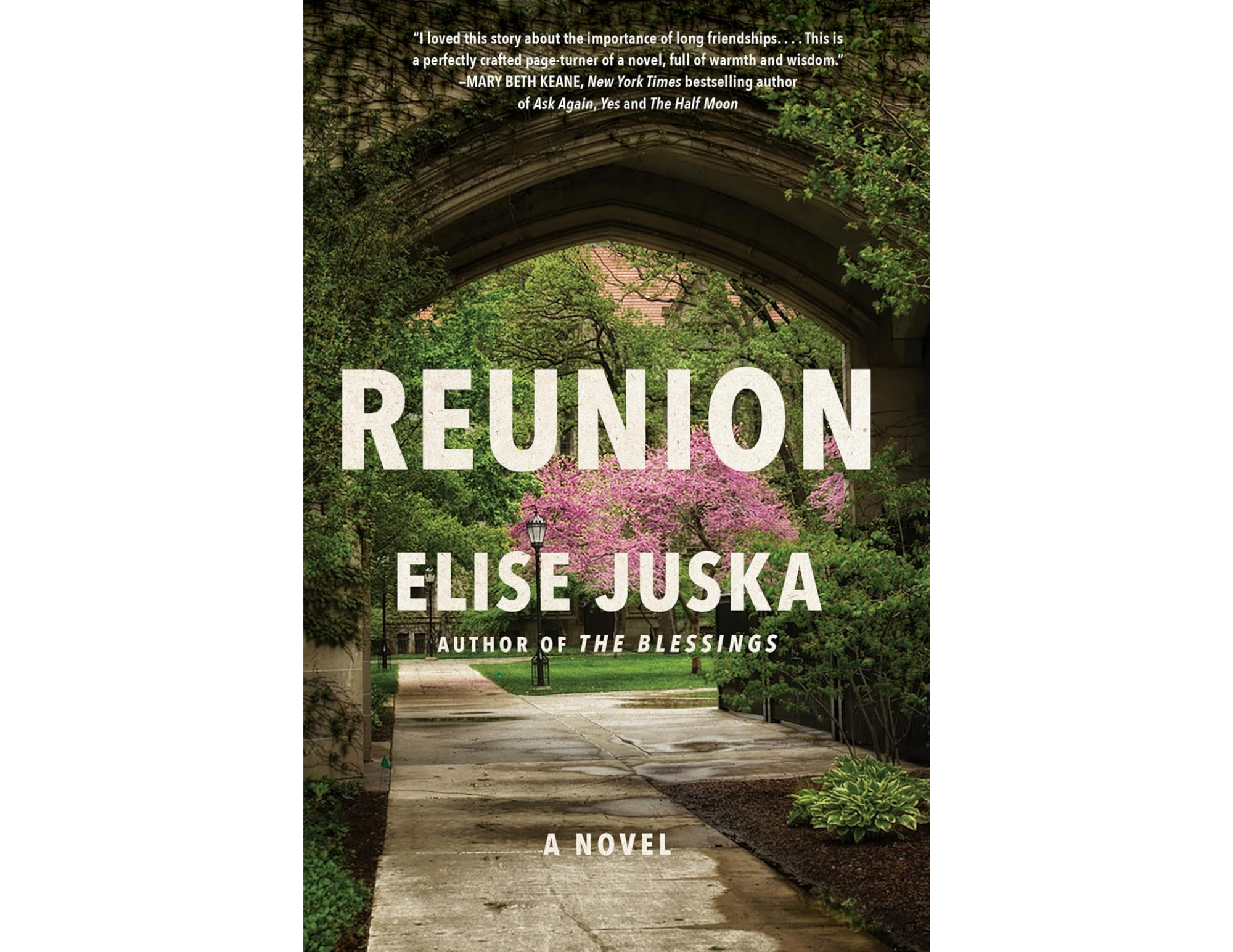In Elise Juska’s latest novel, Reunion, three friends converge at their pandemic-postponed twenty-fifth college reunion, where blistering secrets of marriage and parenthood burst over the course of a weekend brimming with nostalgia and danger in unexpected places.
Hope, Adam, and Polly form an unlikely trio with their different socioeconomic backgrounds, values, and now parenting styles. In their undergraduate years, Hope’s perceived carefree nature and affluent Philadelphian background initially created a barrier between her and NYC roommate Polly, who saw her as naïve and unaware. Polly’s humbler background and unconventional style—including her trademark leather jacket that was often insufficient against the Maine weather—set her apart in their cohort. Connecticut-born Adam stumbled in one night—literally—mistaking the others’ dorm for his during a spiral after his father’s sudden death. Hope and Polly adopted him and they stuck together. But quarantine causes the trio to lose touch, each of them quietly dealing with their own struggles and double-edged privileges.
Juska dips into the details that identify each character’s household as a unique, flawed entity. Hope manages her household and two children with little to no help from her increasingly distant and taciturn husband, choosing to delay informing him of the reunion, acknowledging the resentment for how little he pays attention to his own home beyond his office. She grapples with the mantra she and a group of mothers have clutched over Zoom calls: “You can only do what you can do.”
In the New Hampshire woods, Adam has been watching his wife Andrea retreat into depression and reclusion. At first, “Life was hard, but somehow sweet, distilled into only what mattered most,” but when she states that she thinks their two young sons should never go outside, the depth of her worries sets in. Adam was glad to drop anchor with Andrea after his wild twenties, but now feels like they are drifting out to sea. He looks for signs of hope in her mental health and tends what he can for the welfare of his family.
Single-mom Polly is the oft-unresponsive member of the friends’ group chat. An underpaid adjunct college instructor who feels excluded by the more prosperous careers of her peers and their spouses, she has not attended any of the reunions since the fifth. She has tried to give her teenage son Jonah space in their small apartment. While the drive prompts bonding before she drops Jonah at the island home of a friend from summer camp, returning to her alma mater forces her to remember a single choice, a collection of tiny choices. The book shows that in aging, there will be losses and gains, but they don’t have to be transactional; rather, they can come from kindness, learning when to hold on, and when to let go.
All three of the friends carry chunks of their youth into who they are now. Hope sometimes has trouble seeing beyond her bubble—and feels like no one sees in. Adam still bears a streak of impetuousness—and a tolerance for awful beer. Polly still stands out among designer-donning alumni—and carries a perspective that, while changed with motherhood, puts her most in-touch with those closest to the bridge of adolescence to adulthood.
Juska highlights how by midlife it is still possible—and likely—to make mistakes. In this, she does not alienate readers of different generations. Going off with old flames despite wedding bands. Getting drunk and doing an old ritualistic challenge unkind to bodies that have changed over twenty-six years. The characters’ flaws are both a source of endearment and an opportunity to see how not even adults who have been adults for a while always have their ducks in a row. They are still making mistakes, still learning.
At last, the first day of the reunion is filled with long drives, hors d’oeuvres, and anticipatory texts as Hope waits for Adam and Polly to arrive. Familiar faces provide comfort and old haunts stir pots of nostalgia and pain. But the final trial of the story is yet to come. In the morning, Polly gets a call: Jonah has disappeared. Despite hangovers and injuries, the trio gathers to search for him. Hope drives, Adam treks through the rain, and over coffee, trying her best to stay calm, Polly finds herself sharing more than she thought she would.
Knowing how and when to ask for help—and the sheer doing of it—can be a lifelong lesson. One of Hope’s chapters highlights this: “She didn’t like complaining. She remembered the matter-of-fact way her great-grandmother would refer to having lived through the Depression; one day, they’d look back and this would be a thing that had been through.” Reunion doesn’t let you settle on the side of just one character. Everyone’s point of view has validity. Everyone has reasons. The book is an exercise in empathy. It investigates what it means to know a person. It says that it is never too late to come clean.
You can find more about Elise Juska and her novel here.
Reunion
Elise Juska
Harper Collins
May 7th, 2024
294 pages

